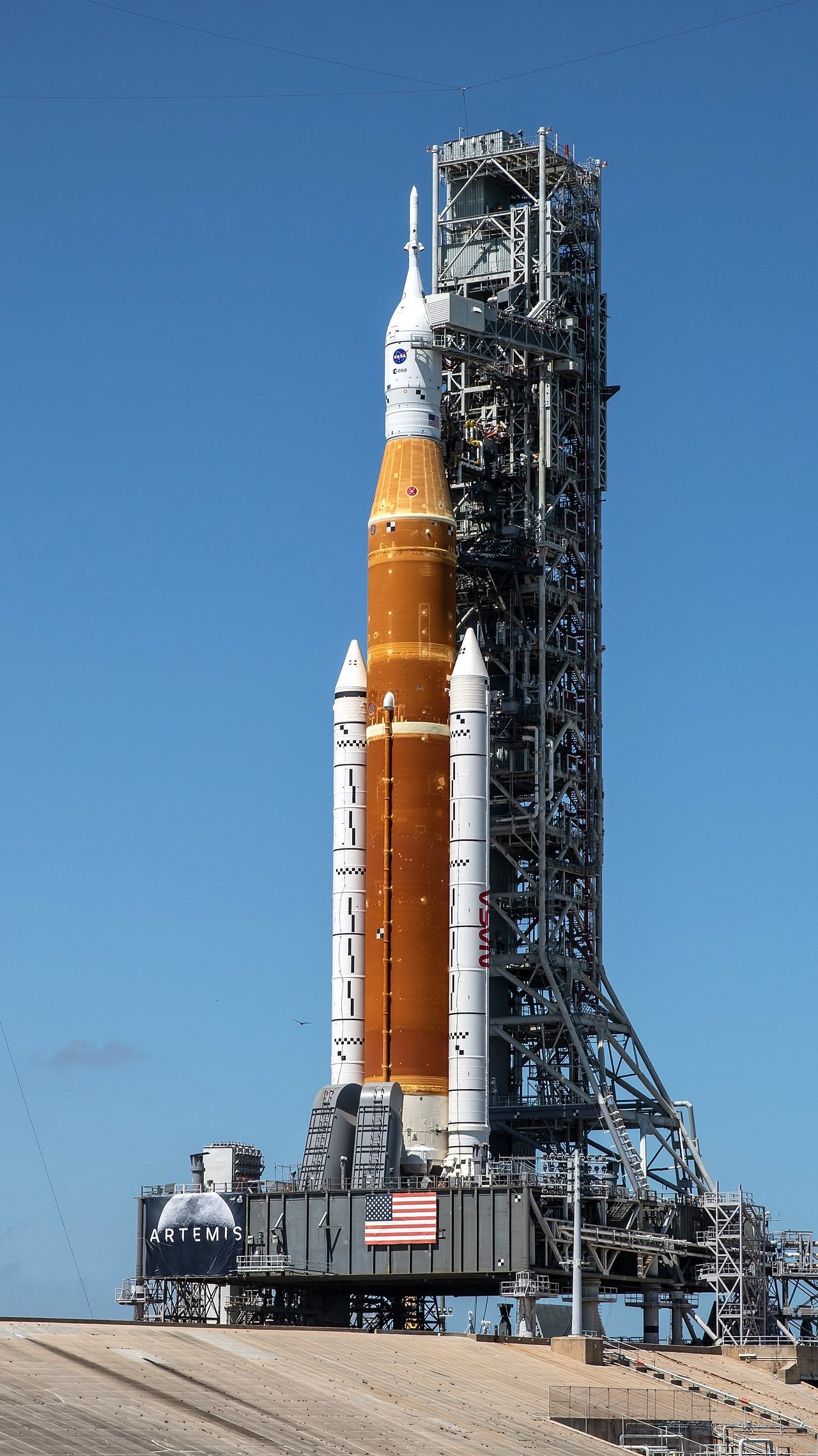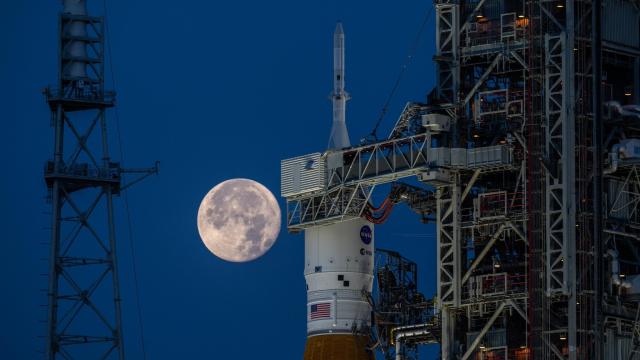Speaking to reporters earlier today, NASA officials outlined three potential dates for the inaugural launch of the space agency’s Space Launch System (SLS), the earliest of which could happen on August 29.
After years of delays, cost overruns, and technical hurdles, the Artemis 1 mission appears to be finally at hand. Yes, the first mission of the Artemis era involves the maiden voyage of NASA’s gigantic SLS rocket, but there’s more to the mission than just that. The rocket will send an uncrewed Orion capsule on a 437,000-kilometre journey to the Moon and back, but without landing. And on its return, Orion must withstand re-entry through Earth’s atmosphere, deploy its parachutes, and perform a successful splashdown in the ocean.

Earlier today, on what is the 53rd anniversary of the Apollo 11 Moon landing, NASA officials provided new details about the timing of this much-anticipated launch. Jim Free, NASA’s associate administrator, Exploration Systems Development Mission Directorate, said “we have placeholders on the range for August 29, September 2 and September 5.” Weather permitting, of course. Free said the dates are “not an agency commitment” and that a flight readiness review, to be conducted one week prior, will be needed for such a commitment. “But these are the dates that the team is working to,” he added.
Indeed, ground teams have been hard at work over the last several weeks in preparation for the inaugural launch. The $US23 ($32) billion megarocket was carted back to NASA’s Vehicle Assembly Building (VAB) following the fourth attempt at a full wet dress rehearsal, in which the rocket was loaded with propellant and ground teams rehearsed the countdown. The wet dress wasn’t perfect, but ground teams were sufficiently satisfied with the results, sending SLS back to the VAB for final fixes and close-outs.
Cliff Langham, NASA’s senior vehicle operations manager, told reporters that a pesky hydrogen leak was remedied and is now awaiting further tests. A loose connection on the umbilical plate was tightened up and is also ready for testing, he added. Should all go as planned, and should the flight readiness review go well, SLS could exit the VAB on August 18 and begin its short journey to Launch Pad 39B at Kennedy Space Centre.
Mike Sarafin, Artemis mission manager, provided more specifics about the three launch windows. They are as follows:
- The Monday, August 29 launch window opens at 10:33 p.m. AEST and will last for two hours. This long-class mission would last for 42 days and end on October 10.
- The Saturday, September 3 launch window is also two hours long, but it’ll start at 2:48 a.m. AEST. This mission would last for 39 days and see a landing on October 11.
- The Tuesday, September 6 launch window starts at 7:12 a.m. AEST and lasts for 90 minutes. This mission would last for 42 days and end on October 17.
Once in space, Orion will perform four major thruster burns to reach a retrograde orbit around the Moon. Another paired sequence of burns will then put Orion on a trajectory back to Earth. Three manikins will be on board to collect valuable data pertaining to vibrations and radiation exposure. The team is seeking a full demonstration of all systems across the various mission phases. Recovery teams will retrieve the Orion crew module after splashdown, allowing technicians to inspect the vehicle and retrieve data recorders. A thorough analysis of Orion’s heat shield is also key to this mission.
A successful mission would pave the way for Artemis 2 — a repeat of Artemis 1 in virtually all respects, save for the inclusion of an actual human crew. If all goes well, Artemis 2 could happen as early as 2024.
